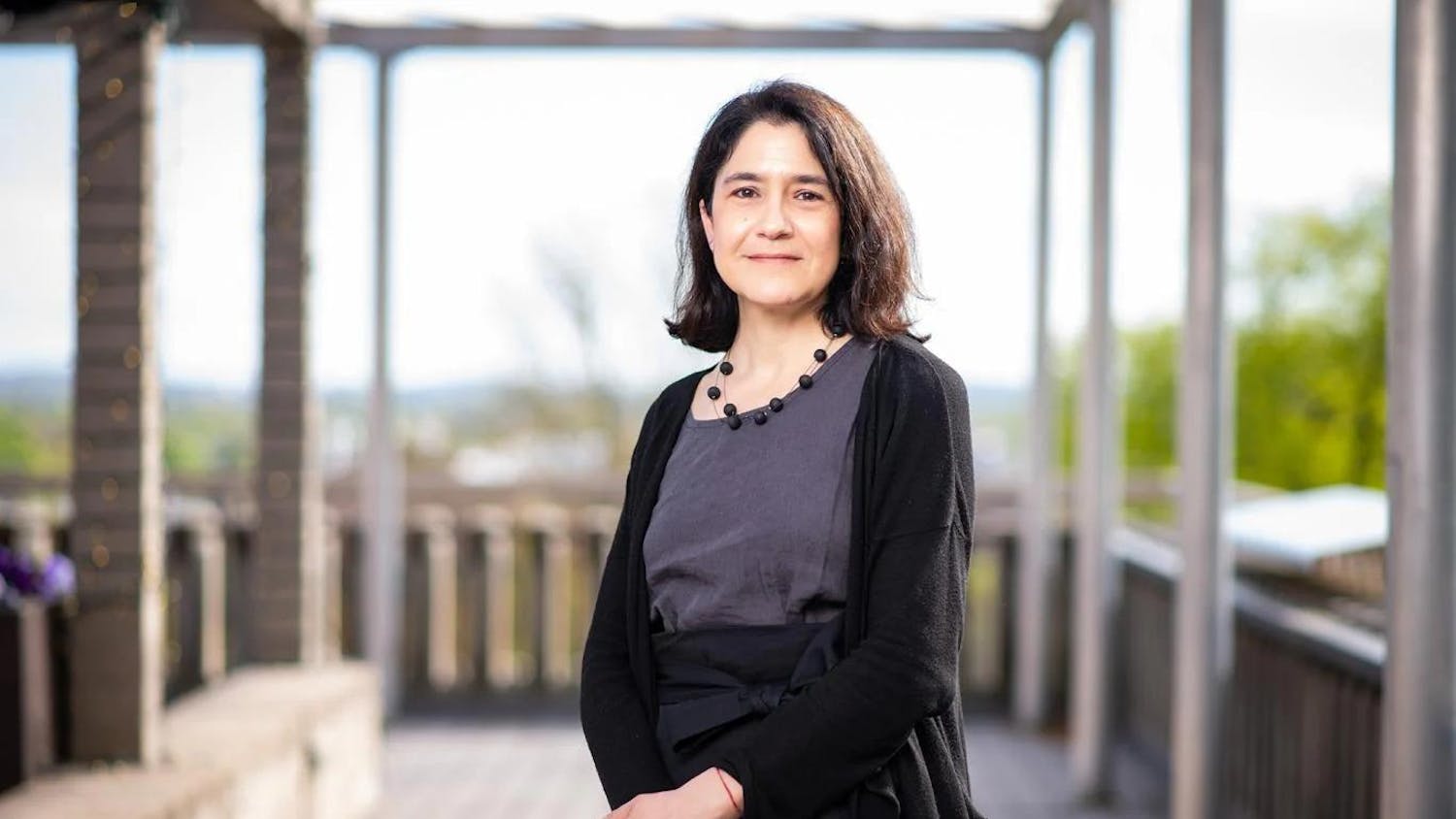India native and Simmons College Professor of Sociology JyotiPuri last night discussed the social justice implications of the recent decriminalization of sodomy in Delhi, India.
The lecture, which was co−sponsored by the Women's Studies Program and the International Relations Program, was based on the contents of Puri's upcoming book manuscript, "Sexual States: Governance and the Decriminalization of Sodomy in India's Present."
Puri, a professor of sociology and director of the graduate program in gender/cultural studies at Simmons College, analyzed the efforts to repeal Section 377 of the Indian Penal Code and the limitations of the decriminalization for some marginalized groups within the homosexual population.
Section 377, established under British colonial rule, outlawed "carnal intercourse against the order of nature." The 150−year−old law was read down in 2009 in the High Court of Delhi, which concluded that the criminalization of consensual sexual acts violated the nation's constitution.
However, the ruling has been appealed to the Supreme Court of India, which Puri expects will review the decriminalization within the next year and rule on sodomy legislation nationally, Puri explained.
"The ruling decriminalizes sodomy and extends the right to life with dignity and autonomy of private will to sexual minorities," Puri said. "It affirms the principle of constitutional morality. By acknowledging those who are seen as anormative due to their sexual or gender expressions, it brings within the folds of constitutional rights and protections."
Today, homosexual intercourse is only explicitly legal in private.
The decriminalization has not updated legislation that punishes public sodomy with up to 10 years of imprisonment, according to Puri. Public heterosexual intercourse has much lighter criminal implications, she said.
"Although same−sex consensual sex has been decriminalized, it is debatable whether same sex sexual activity in non−private places, or public places, could still be penalized under Section 377, or whether the spirit of an expanded understanding of privacy will prevail," she said.
Puri added that this distinction poses class disadvantages.
"Section 377 does not impact all queer groups equally. … Working− class gay men are the ones least likely to have access to the privacy of a home or a hotel and therefore remain vulnerable to the threat of Section 377 because of the incompleteness of decriminalization," she said.
"The reality [is] that sexual conduct among MSM [working class homosexual men] frequently occurs in public settings," she said. "Parks and urinals are the public places used by working class, non−English speaking men."
Initially, efforts to legalize homosexual relations took a public health approach, arguing that such a legislative change would help address HIV/AIDS in the country, according to Puri.
In her talk, Puri explained that the court was persuaded by arguments for the right to privacy. The public interest litigation put forth to oppose the law in 2001 argued that "not only is the right to be left alone or to pursue happiness constitutionally protected, but that it fundamentally includes sexual relations," Puri said.
Puri has also authored books titled "Woman, Body, Desire in Post−colonial India: Narratives of Gender and Sexuality" and "Encountering Nationalism."
Sonia Hofkosh, interim director of the Women's Studies Program, said that she extended the invitation to Puri as soon as she took on her role this fall.
"She's a dynamic speaker," Hofkosh said.
Senior Hannah Hussey, a sociology and women's studies major, welcomed the opportunity to learn about the experience of members of the lesbian, gay, bisexual and transgender (LGBT) community in other countries.
"I'm kind of interested in how different states treat homosexuality and LGBT, and we were actually supposed to read her in one of my classes, Sociology of Sexuality," she said.
Sophomore Grainne Griffiths appreciated listening to Puri's personal take on the issue.
"[The event] was kind of on a higher plane than I thought it would be, but it was very interesting to follow along and hear the academics go back and forth and discuss their own thoughts, which you don't get to see that often on campus," she said.





